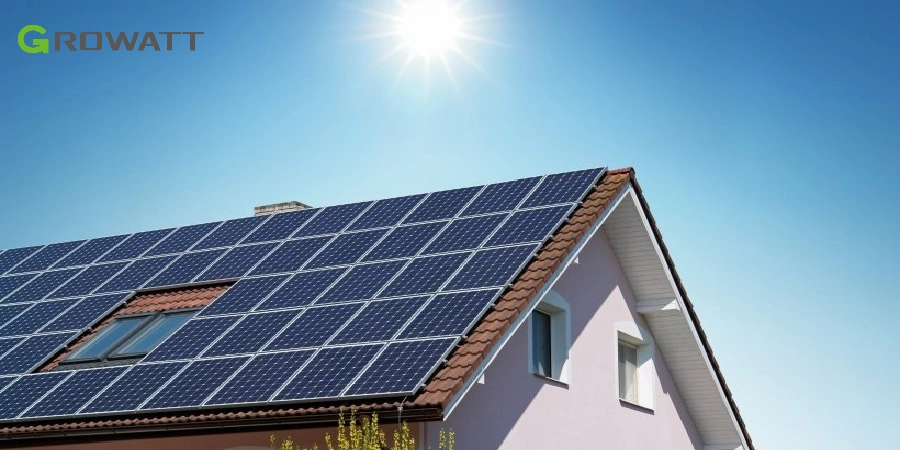Solar panels do not necessarily make houses hotter. Solar panels are designed to absorb sunlight and convert it into electricity, which helps reduce the amount of heat that enters a home. By absorbing the sunlight and converting it into usable energy, solar panels can help reduce a home’s reliance on traditional forms of energy that contribute to heat generation, such as fossil fuels. Throughout this article, we will provide you with the answers to the questions regarding whether solar panels make houses hotter, so read on.
Is that true, solar panels make your roof hotter?
While it is true that solar panels can absorb sunlight and convert it into electricity, these panels do not typically produce a significant amount of heat that would make a home hotter. In fact, solar panels are often installed on rooftops to take advantage of the sunlight that naturally hits the roof of a house. By absorbing this sunlight and converting it into electricity, solar panels can help cool a home by reducing the amount of heat that is being absorbed by the roof.
Additionally, solar panels can help reduce the overall amount of heat that is produced by a home’s energy consumption. By generating clean, renewable energy from sunlight, solar panels can help reduce the need for traditional forms of energy that create heat and contribute to climate change. This can help keep a home cooler and reduce the overall environmental impact of energy consumption.
It is important to note that while solar panels can help reduce a home’s energy consumption and overall environmental impact, they are not a silver bullet for addressing climate change. To effectively combat climate change, a combination of energy efficiency measures, renewable energy sources, and other sustainable practices are needed. Solar panels can be a valuable tool in this effort, but they are just one part of a more extensive solution. To buy a high quality inverter such as SPF6000ES+, check our site.
Do solar panels reduce heat in the house?
Solar panels can help reduce the heat inside a house by acting as a barrier between the sun’s rays and the roof. When sunlight hits the solar panels, they absorb the energy and convert it into electricity, which helps to reduce the amount of heat that is transferred into the house through the roof. This can result in lower temperatures inside the house, especially during hot summer months.
Additionally, the placement of solar panels on a roof can provide shade and help block direct sunlight from hitting the roof and causing it to heat up. This can help to keep the house cooler and reduce the need for air conditioning, which in turn can save energy and lower utility bills. Overall, solar panels can play a significant role in reducing heat in the house and creating a more comfortable living environment.
Do solar panels get hot?
Solar panels typically operate at temperatures ranging from 25 to 45 degrees Celsius (77 to 113 degrees Fahrenheit). However, during peak sunlight hours, solar panels can become much hotter, reaching temperatures of up to 65 to 75 degrees Celsius (149 to 167 degrees Fahrenheit). It is essential for solar panels to be able to dissipate this heat in order to maintain optimal efficiency and longevity. To get more details about Growatt off grid inverter price in dubai, feel free and call our experts.
All you need to know about Reflect Heat Solar Panels
Reflect Heat Solar Panels are cutting-edge technology that harnesses the power of the sun to generate clean and renewable energy. These panels are designed to maximize the absorption of sunlight and convert it into electricity, making them an efficient and cost-effective solution for homes and businesses looking to reduce their carbon footprint. By utilizing a special reflective coating, these panels can capture and retain more heat from the sun, making them more efficient than traditional solar panels.
One of the key benefits of Reflect Heat Solar Panels is their ability to help generate electricity even in low-light conditions. This means that they can continue to produce energy even on cloudy days or during the winter months when sunlight is scarce. This reliability makes them an attractive option for those who are looking to transition to renewable energy sources while ensuring a stable and consistent power supply for their property.
In addition to their energy efficiency, Reflect Heat Solar Panels are also environmentally friendly. By utilizing the power of the sun, these panels help to reduce the reliance on fossil fuels and lower greenhouse gas emissions. This not only helps in combating climate change but also contributes to a healthier and cleaner environment for future generations.
Furthermore, Reflect Heat Solar Panels offer a cost-effective solution for generating electricity. By reducing the general reliance on traditional energy sources, these panels can help lower energy bills and provide long-term savings for homeowners and businesses. In addition to that, many governments offer incentives and rebates for installing the solar panels, making them an even more attractive investment. As technology continues to advance, Reflect Heat Solar Panels are sure to play a vital role in the transition to a more sustainable and environmentally friendly future.
Igrowattinverter, the biggest growatt distributor
In conclusion, solar panels do not make houses hotter. In fact, they can help reduce a home’s reliance on traditional forms of energy that generate heat and contribute to climate change. By converting sunlight into electricity, solar panels can help cool a house by reducing the total amount of heat that is absorbed by a building’s roof. While solar panels are not a cure-all for addressing climate change, they can be a valuable tool in reducing a home’s environmental impact and increasing its energy efficiency. growatt inverters dubai are the best inverters for homes and careers.




